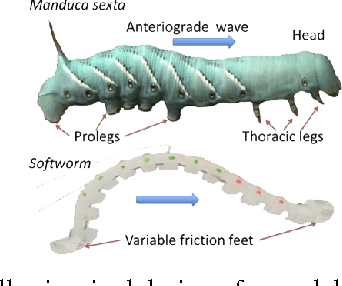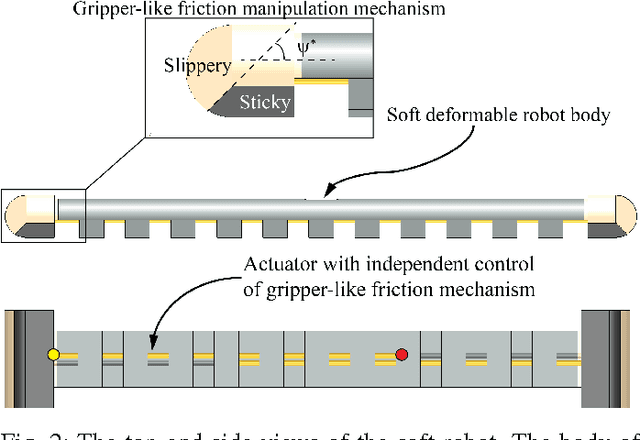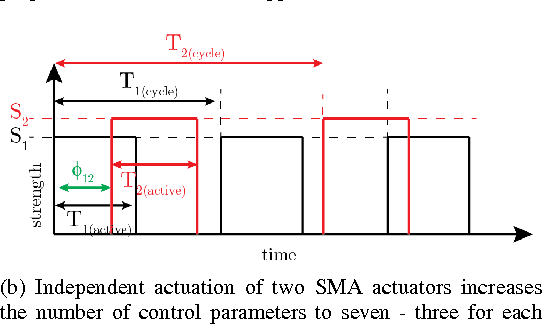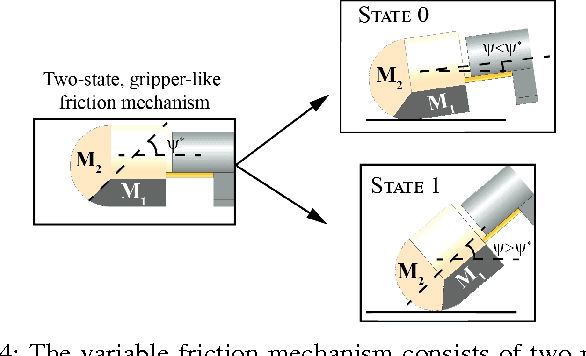Design and control of a soft, shape-changing, crawling robot
Paper and Code
Sep 24, 2015



Soft materials have many important roles in animal locomotion and object manipulation. In robotic applications soft materials can store and release energy, absorb impacts, increase compliance and increase the range of possible shape profiles using minimal actuators. The shape changing ability is also a potential tool to manipulate friction forces caused by contact with the environment. These advantages are accompanied by challenges of soft material actuation and the need to exploit frictional interactions to generate locomotion. Accordingly, the design of soft robots involves exploitation of continuum properties of soft materials for manipulating frictional interactions that result in robot locomotion. The research presents design and control of a soft body robot that uses its shape change capability for locomotion. The bioinspired (caterpillar) modular robot design is a soft monolithic body which interacts with the environment at discrete contact points (caterpillar prolegs). The deformable body is actuated by muscle-like shape memory alloy coils and the discrete contact points manipulate friction in a binary manner. This novel virtual grip mechanism combines two materials with different coefficients of frictions (sticky-slippery) to control the robot-environment friction interactions. The research also introduces a novel control concept that discretizes the robot-environment-friction interaction into binary states. This facilitates formulation of a control framework that is independent of the specific actuator or soft material properties and can be applied to multi-limbed soft robots. The transitions between individual robot states are assigned a reward that allow optimized state transition control sequences to be calculated. This conceptual framework is extremely versatile and we show how it can be applied to situations in which the robot loses limb function.
 Add to Chrome
Add to Chrome Add to Firefox
Add to Firefox Add to Edge
Add to Edge